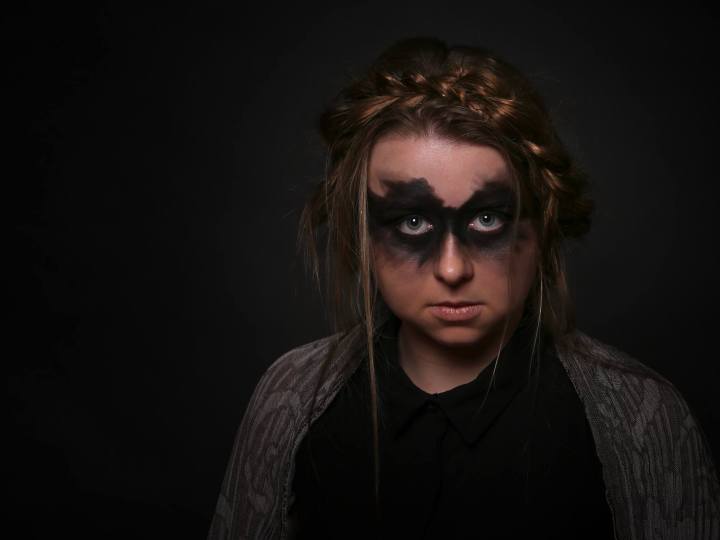Most young aspiring theatre makers will find themselves involved in a Shakespeare production at some stage in their training; it’s an essential part of learning ‘the craft’ and remains so, even with the passing of 400 years since old Bill shuffled off his mortal coil. Riptide is giving a few young theatre makers a chance to develop and perform a fresh adaptation of Shakespeare’s King Lear, which the company has renamed Queen Leah. Artistic Director Kathryn Osborne, straight off the back of directing a critically-lauded opera with OperaBox, is putting the finishing touches on Queen Leah before it opens next week, and she talks to us about the process of adapting King Lear.
How did the choice to adapt King Lear come about, and why was this particular Shakespeare play chosen?
I’ve only been artistic director of RIPTIDE for a year. When I first took on the role, I asked the current ensemble what they were interested in doing. Everyone wanted to do an adaptation of a classic and I instantly thought of doing a contemporary Shakespeare, because of the 400th anniversary of his death. I wanted to do King Lear because it was a challenge for us. A big play, with big themes and characters. It’s a difficult play to stage, but has some fantastic imagery in it that I imagined could be very evocative and physical. I was also interested in creating an adaptation that was from the viewpoint of the younger characters who were inheriting the fortunes and responsibilities of their parents. So our version of Lear is very much about what type of world the younger generation is inheriting.

How long has the show been in development, and what kinds of training have the young actors been able to receive in the process?
We have been planning the project since earlier in the year, with development beginning in July. We had a period of devising, where we created new scenes and text to sit alongside the Shakespearean text and we decided what parts of the play that we would keep and what parts we would alter. We are lucky enough to be funded both by Country Arts WA and the Department of Culture and the Arts and that funding has enabled us to bring on some highly skilled mentors. Our mentors have helped the ensemble understand the language and play and enabled us to find our own interpretation. We also have a great production team who are mentoring young assistants in sound, set and costume design and directing.
How did the gender swap come about and what makes it a compelling choice for the adaptation?
It was my first idea. I am always interested in shaking up the gender roles in my work. Lear is such an interesting character and I was interested in how the journey from power to nothingness would be read differently if it were a female character. Lear is also very un-nurturing and ruthless and I wanted to give the audience a female version to undercut the idea that women display natural tendencies towards kindness and compassion. Queen Leah takes her role as leader very seriously and very selfishly does not want to give her power up.
What kinds of changes have been made in the language? Is it a blend of Elizabethan and modern? Are there any other significant changes to the play besides language and gender?
It is a blend of both languages. We have made one of the main characters the narrator who has direct contact with the audience in contemporary language. We made this choice to help an audience who may not be familiar with Shakespearean language gain access to the story. I also want to audience to be aware that we are a youth theatre company doing a version of King Lear, retelling the story through our eyes. Using contemporary language means we can comment on the relevance of the text and the story as we go. We also have written some completely new scenes in contemporary language and brought out new sides to the characters by doing this. The ensemble was very interested in also bringing the off stage action on stage. So in a way, we are filling in gaps of what we think might have happened that are unspoken in the Shakespearean text. We also do have some scenes which are straight from the play and performed as is, mostly the key moments and speeches that are just too good to leave out!
What has been your own history as a theatre maker with the works of Shakespeare? Are you a big fan with a completely dog-eared, marked-up Complete Works on your shelf, or are you a take-it-as-it-comes kind of person?
I’m definitely a Shakespeare novice. Another reason why I wanted to do this adaptation with Riptide. In a way, it’s a positive that I haven’t had much experience directing Shakespeare, because I’m not held back by a certain way of doing things. And our mentors have a lot of experience in Shakespearian performance so they have been a huge help to fill in the gaps in my knowledge. So audiences can definitely expect a fresh and unorthodox approach to the work. Hopefully we have brought something new to the long, long, long history of performances of King Lear.

What are the highlights and challenges of tackling Shakespeare with a youth theatre company?
It’s been mostly one big highlight. The Riptiders have such a great energy and give so much. They love to make each other (and me) laugh so it’s been a blast.
The main challenge is the lack of time you can put aside to rehearse. Because of school and university commitments we can’t rehearse like a professional company, but there are always practical limitations that you have to overcome when working on any project.
What do you as a director get out of working with young performers, and especially in regional areas, and how does it differ from working in the city with your usual adult collaborators?
The ensemble are really passionate about making exciting work accessible to their community. So as a director it really gives you a different perspective and goal to aim for. Trying to make an excellent work for a broader audience than I would normally be used to. It also means we get to try lots of things and take big risks, which feels very liberating. In general, it feels like I can have a fresh perspective. And having fun is just so important. There’s a big social aspect to Riptide, so we always have lunches together and catch up.
Queen Leah runs from 29 September to 1 October at Mandurah Performing Arts Centre. For more information and tickets, visit the MPAC website here.
CICELY BINFORD

